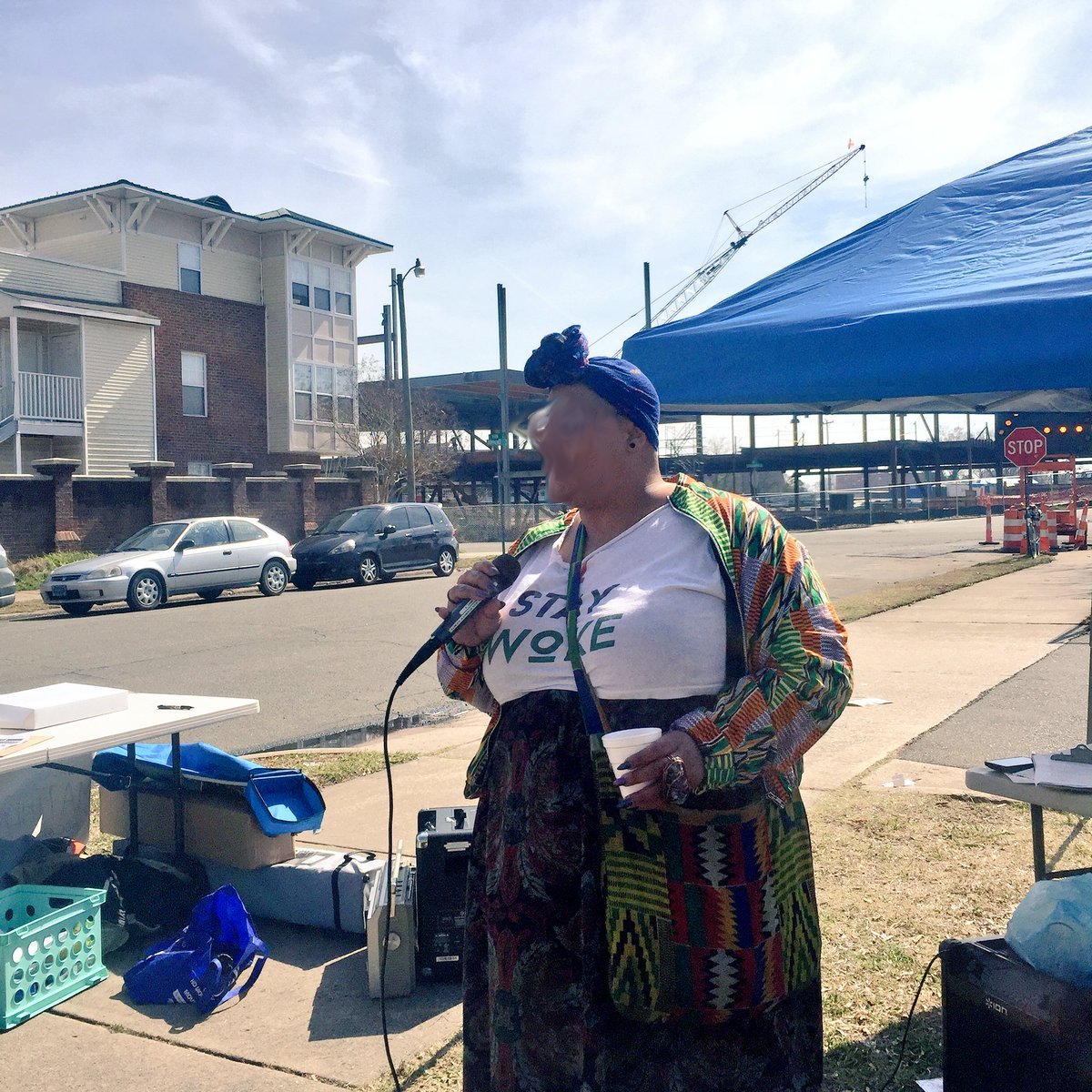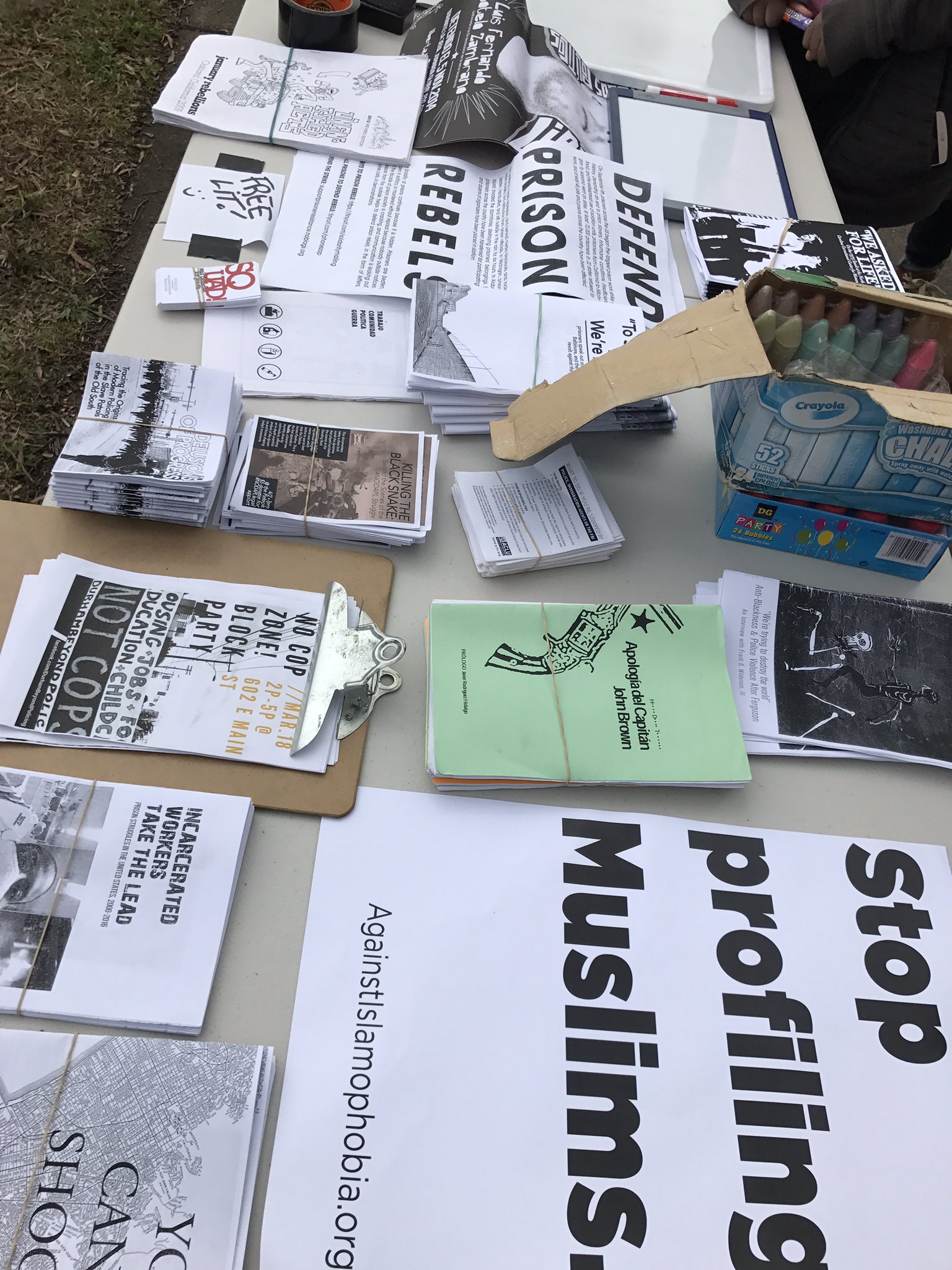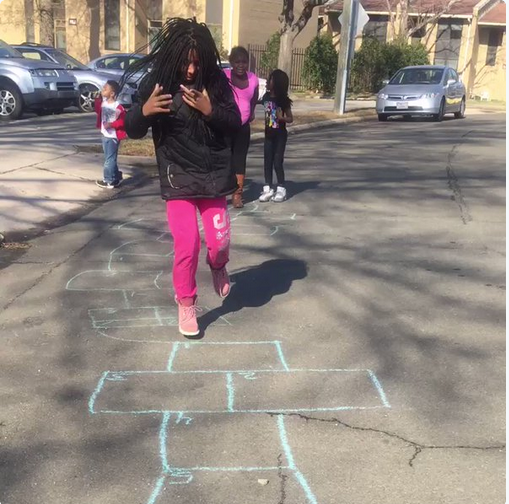Filed under: Police, Southeast, White Supremacy

On the initially gray, but eventually sunny Saturday afternoon of March 18th, a group of neighbors, activists, and artists gathered for Durham, NC’s first “No Cop Zone” block party, hosted by the abolitionist group Durham Beyond Policing. In the grass lawn and adjoining street of an apartment complex at E. Main and Commerce St., people ate barbecue, listened to music, played football and hopscotch, connected with new and old friends, picked up free lit on other anti-police struggles past and present, and heard from a range of local groups involved in everything from getting cops out of schools, fighting against ICE and building immigrant power, organizing at the downtown jail, and more. A loved one of Kenneth Bailey, recently murdered by DPD, also spoke.

By no coincidence, the block party took place directly across from the construction site of the new, $71 million police headquarters. The new DPD HQ represents an immense expenditure of resources that could be used instead to support a wide range of community needs, in particular related to housing, in a city where rents have been increasing drastically. Beyond city budgetary policy, however, the construction of the new headquarters at that exact site, more or less the ‘gateway’ to east Durham, is a strategic decision to better discipline and control the lower-income and especially Black communities of the eastern part of our city. If an uprising like the one that struck Charlotte last September were to happen here, for instance, this new building and its corresponding neighborhood substations would better position the police to contain and repress that struggle. Given the last several years of police shootings and protests that have increased scrutiny on DPD, the new chief of police, Cerelyn Davis, is absolutely aware of this strategic necessity.

It seems like Davis’ preferred public relations strategy is one of soft or “community” policing. Even as the repressive DPD grows in size, for example, she recently responded to public anxieties over Trump’s immigration policy by announcing an end to immigration checkpoints. Left out of her announcement, however, were the facts that the Sherriff department will continue such checkpoints, that the city maintains its relationship with ICE, and will continue to participate in notoriously racist jurisdictional checkpoints like “Click it or Ticket”. This announcement can be seen as an attempt to demobilize and separate Latinx organizing against deportations from ongoing struggles against policing.

As long as there are police, however, the city of Durham will always be one giant checkpoint for Black and Brown people. In light of that reality, this block party was one event in an ongoing effort to disrupt and undermine DPD’s public relations strategy as we build our own power. In particular it was a place for folks from different communities, political backgrounds, and organizations to share a single social space that was distinct from a protest but still broadly antagonistic to the police. We need more spaces like this in Durham, and hopefully this was just one of many more to come.





